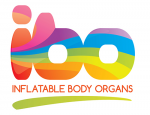5 Things You Need to Know This Month....
EuropaColon is organising, attending and presenting many colorectal cancer congresses, patient conferences and political events throughout Europe. Please click on the following links to learn more about forthcoming events.�
05 July 2018
Understanding of metastatic colorectal cancer (mCRC) in the real world: Initial results from a European survey on the unmet needs of patients living with metastatic colorectal cancer
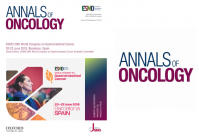
�
02 July 2018
EuropaColon 3rd Advocacy Masterclass 2018
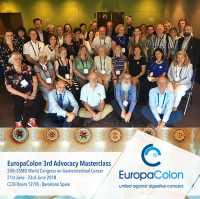
Presentations and videos are available below.
�
�
�
Prof. Hanneke van Laarhoven - Understanding the Oesophago/Gastric Journey
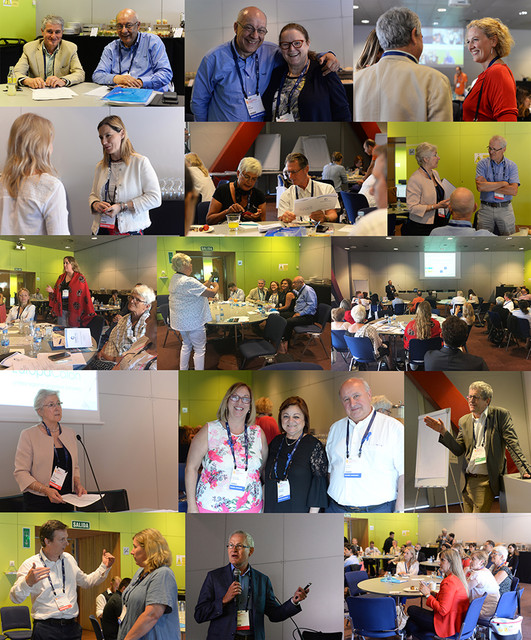
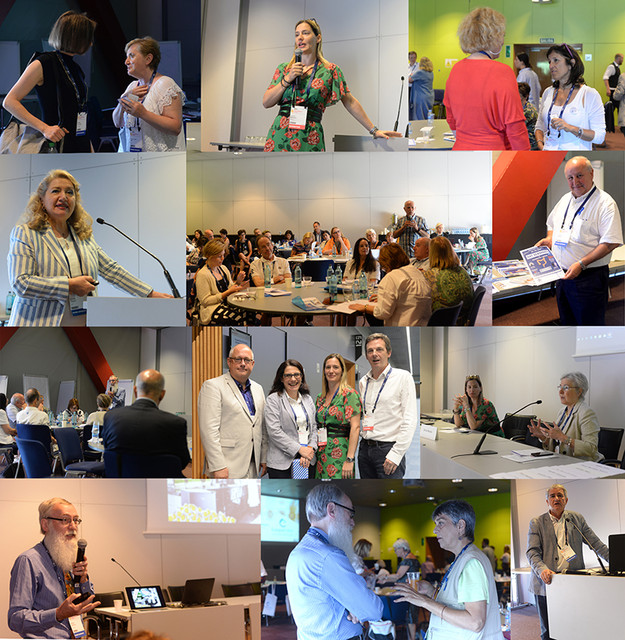
07 June 2018
5 Things You Need to Know... May 2018

You know it has been a productive few weeks at EuropaColon when you hardly see your colleagues for the entire month!� We have all been busy with various projects, which have taken us all off in different directions. However, there�s a lot to show for it at the end of the month!
1)��� Oesophageal/Gastric Cancer Patient Survey is LIVE!�
We are delighted to announce that our Oesophageal/Gastric Cancer Patient Survey has now gone live. It is available on our website in 12 languages (English, Flemish, French, Greek, German, Italian, Latvian, Netherlands, Polish, Portuguese, Russian and Spanish).�
The survey is open for anyone who has been diagnosed with oesophageal or gastric cancer. If that�s you, please do complete the survey � your input could make a real difference. We want to use the results of this survey to raise awareness of these cancers amongst Health Ministers, policy makers, the media, clinicians and anyone else who can help us make a difference for patients.
We passionately believe that more funding is needed for these cancers and the patient experience needs to improve through early diagnosis and better medicines. Only by understanding and communicating the patient perspective can we get to the heart of what matters most.
Anyone who can support us with raising awareness of this survey is invited to make contact with Geoffrey Henning to discuss how this can be achieved in your hospital or clinic. EONS, the European Oncology Nursing Society has already agreed to support the survey and we look forward to working with them.
We�ll provide more updates in the weeks ahead!
2)��� There�s a new Digestive Cancer Group at the European Parliament
Staying with digestive cancers, there was a significant step forward taken in May with the creation of the Digestive Cancer Group, formed by Members of the European Parliament (MEPs) to support digestive cancers.
The group is comprised of 17 MEPs from all parties with the intention to raise awareness and support research and treatment for these cancers. The Group is chaired by MEP Pavel Poc (S&D, Czech Republic). The Co-Chairs are MEP Nessa Childers (S&D, Ireland), MEP Michèle Rivasi (Greens, France) and MEP Marian-Jean Marinescu (EPP, Romania).
The Group was created to raise awareness of digestive cancers and to promote policy initiatives to help prevent digestive cancer, deliver early diagnosis and ensure equitable health for all citizens across Europe. This is a very important step forward for digestive cancers and we look forward to working with the Digestive Cancer Group in the future.
3)��� EU meeting to help cancer patients get back to work
A meeting was held in May at the EU Parliament on the topic of better policies for metastatic cancer patients. With the support of Deidre Clune MEP, this project has been gathering import over the year to bring attention to the topic of returning to work after a cancer diagnosis.
There are often difficulties and complications, largely with the various legal systems or employment conditions in different countries. A number of initiatives are being developed to address the rights of people wishing to return to work after an acute illness and we remain committed to supporting these as they unfold.
A key issue that was raised � for this and many other aspects of cancer care � is the difficulty of capturing data that clearly indicates the number of people with metastatic cancer in Europe. With the absence of comparable registries and the added complication of confirming a metastatic diagnosis, it is difficult to know the size of the problem.
The good news is that the EU Parliament is aware of the issue and the need for change. We will keep you updated with further discussions � both on returning to work after a cancer diagnosis and the push for better cancer registries. �
4)��� The benefits of biosimilars
Our Director of Group and Project Development, Zorana Maravic, attended the 16th Biosimilar Medicine Conference,to provide the patient perspective on biosimilar medicines.
Biologic medicines have been transformational for colorectal cancer, having a significant positive impact on life expectancy. Of course, there are still significant issues with equality of access to these life-saving medicines and many people are still unable to have them due to high costs.
Biosimilars are almost identical copies of the original biologic products, which can be developed once the original product�s patent has expired. They can be significantly cheaper than the original product and therefore should have an important role to play in equality of access.
However, at the same time, it is important that patients are kept fully informed of all the relevant information as we believe it is important patients are armed with the full facts around what they are being prescribed.
So, while we fully support the development of biosimilar medicines and believe they have a vital role to play in increasing access, we believe it is vital that patients have all the information they need to be able to make their own informed decision.�
5)��� Lots more in the pipeline!
We have had a lot of great preliminary meetings this month which could turn into exciting projects.
For example, our CEO Jola Gore-Booth spoke with EURORDIS � a non-profit alliance of 804 rare disease patient organisations from 69 countries that work together to improve the lives of the 30 million people living with a rare disease in Europe. There may be great potential to partner together to raise awareness around rare gastrointestinal cancers.
She also met with Professor Jane Blazeby and Dr Angus McNair from the University of Bristol in the UK who are doing some excellent work on the topic of Patient Reported Outcomes Measures (PROMs) in the UK. We look forward to further discussions to see how we can take some of their findings to the European level��.so watch this space!
Jola�is also a member of the ULTRAPLACAD Consortium funded by Horizon 2020 which met this month in Nijmegen to finalise their project on the potential role of liquid biopsy in the very early diagnosis of CRC. The project is showing a lot of promise and hopefully they will be able to raise more funds to continue this great work in 2019
So, lots of meetings and lots of exciting projects in the pipeline!
We will keep you informed of any key updates in the next newsletter. Until then, we wish everyone a very happy start to the European summer!
03 May 2018
5 Things You Need to Know... April 2018

First of all, another huge congratulations and thank you to everyone who got involved in European Colorectal Cancer Awareness Month (ECCAM) during March. The range and quality of activities we have seen across so many different countries has been remarkable, and some further highlights are below. In April, the momentum from ECCAM has continued with several major projects!���
1)��� The success stories from ECCAM keep rolling in!!
It is so rewarding to hear about all the success stories from across Europe. We urge all our Affiliate and Aassociate organisations to keep sending these in!�
Cyprus Association of Cancer Patients and Friends (PASYKAF) - our Associate in Cyprus � undertook a range of events.� Most excitingly of all, they launched the new national colorectal cancer screening programme in partnership with the Ministry of Health � a hugely positive outcome for the country.
They also organised an awareness day with a giant inflatable colon at a popular shopping mall, and lectures on prevention and early diagnosis of colorectal cancer.
In Spain meanwhile, EuropaColon Espa�a organised a major debate in�Madrid focused on�inequity in providing patients innovative cancer treatment. Health affairs politicians and spokespeople from all parties were invited with the aim to identify the exclusive economic criteria that Regional Health Departments use to provide breakthrough drugs to cancer patients.
They also organised a meeting with colorectal patients titled "Colorectal Cancer: Everything You Have To Know" and joined a meeting organised by the Colorectal Cancer Prevention Alliance�focusing on how screening programmes are developing in Spain.
EuropaColon Solvenia were as ever very proactive throughout ECCAM too, organising a major press conference, which highlighted the success of the CRC screening programme, and a lecture tour around the country to raise awareness of the disease among the general public.�
They also published a magazine for patients and their families, with information and personal stories, and organised a major symposium for primary caregivers, which attracted 130 participants.
Congratulations to everyone!
2)��� Why big data is a big topic
We attended a major meeting this month with the EAPM (European Alliance for Personalised Medicine), which is taking the lead to clarify misperception around the collection and use of patient data (often referred to as �big data�.)
Big data has the potential to unlock insights and solutions that would never have been previously considered. At the meeting it was agreed that better information needs to be provided so that people can understand how their data is used, the benefits of this approach, and reassurance on the level of risk. We will keep monitoring this important topic and the potential implications it has for patients with CRC.
3)��� Raising awareness of Essential Requirements of cancer care
The Essential Requirements of Quality Cancer Care (CRC) were published in 2017 and set out what the patient can expect to receive from their hospital and doctors throughout their care.
EuropaColon represented the patient viewpoint at an ESO (European School of Oncology) webinar review on the topic. Making these Requirements better known to the clinical community was the purpose of this webinar lead by Professor Peter Naredi, past President of ECCO. EuropaColon stressed the importance of collaboration between patient organisations and the clinical community to improve patient care across the pathway. Look out for more on this soon!
4)��� Oesophageal/Gastric cancer patient survey is about to go live!
Our major patient survey into oesophageal/gastric cancer is now nearly ready to go live � keep an eye on the website during May!
This will be the first survey of its kind across Europe looking at the needs and experience of patients with an oesophageal/gastric cancer. We aim to collect responses from over 1,000 patients and we will provide the survey in 12 languages.
Survey details will be available on our website, from clinical staff at a number of local hospitals and from patient organisations. The survey is supported by EONS (European Oncology Nursing Society). Please do participate if you can! We will provide a further update next month.
5)��� You are invited to our 3rd Advocacy Masterclass
From 21st to 23rd June, EuropaColon will hold its 3rd Advocacy Masterclass, in partnership with the ESMO World Congress on Gastrointestinal Cancer. Topics up for discussion include the Genome Project, the biosimilars debate, early age onset CRC, awareness and screening of CRC (including initial ideas for ECCAM 2019!) and digestive cancers.� The final agenda will be available soon on the website.
May promises to be an exciting month, particularly with the much-anticipated launch of our Oesophageal/Gastric cancer patient survey. Look out for all the updates in next month�s newsletter!
03 April 2018
5 Things You Need to Know... March 2018

WOW !!! �..what a month!
March is always a very important month for EuropaColon as it is European Colorectal Cancer Awareness Month (ECCAM) and this year was particularly special. 2018 was the 10th anniversary of ECCAM and the galvanising theme was #Time4Change.
Why #Time4Change? Well, in the words of Dr Alfred Sant, MEP, at the launch event, �not enough progress is being made towards implementing a system of colorectal cancer screening across the European Union.� We believe this is unfair and unacceptable. colorectal cancer is often preventable and treatable if caught early.
Everyone deserves the best possible chance to fight it. It is #Time4Change.
Throughout March our members have been working with politicians, clinicians, patient groups and others to spread this important message. Just a few of the highlights are included below. We will share more next month!�
1)��� Amazing awareness campaigns
There have been many incredible awareness campaigns all across Europe.
In Belgium all the teams from the first and second divisions of the Belgian Soccer League actively participated in the campaign during two weekends of their season! This really helped to get the screening message out to a wide audience. In addition, pharmacies across the country coloured their shops blue to help raise awareness.
In Malta, a fantastic media campaign saw ECCAM mentioned on multiple radio and TV programmes, with a particular focus on raising awareness of the need to attend screening. These included some powerful case studies of patients explaining their experience before and after diagnosis and the benefits of early screening.
Meanwhile in Poland, there was a major awareness campaign titled �Switch Off the CRC�, which promoted the need for screening. The campaign involved a mobile clinic driving to six major Polish cities, raising awareness and providing locals with the chance to see a doctor, an educator and a dietician. Cookery workshops were also available to highlight the importance of a good diet to prevent CRC.
2)��� Discussions with doctors
There were also many important debates and discussions with healthcare professionals. Sometimes it is certain conversations with certain influencers that can affect the most change.
In Poland our local partner � EuropaColon Polska - attended the 3rd International Conference on Personalized Medicine in Warsaw to discuss what needs to be done in Poland around better access to personalised medicines.
In Malta a seminar was organised for family doctors titled: �Opportunities and Challenges of Colorectal Cancer Screening�. �It raised awareness of the situation in Malta among national GPs and included best practice presentations from other countries, for inspiration. Another event in Malta focussed on colorectal cancer Nurse Navigators and their vital role in supporting patients.
3)��� Partnering with politicians
Political stakeholders are vital to make legislative change a reality.
In Malta, key opinion leader Professor Stephen Halloran met with the President of Malta herself, Marie Louise Coleiro Preca, at San Anton Palace. Professor Halloran informed the President about colorectal cancer screening and the unmet needs that exist in the country.
In Poland, our local partner had the opportunity to participate in a conference of the Parliamentary Team of the Organization of the Healthcare System. The focus was on optimisation the model of care for colorectal cancer patients in Poland; many issues were highlighted and there is hope for a follow-up meeting to progress this further. �
4)��� Our major gastric survey is launching very soon!
It has not just been about ECCAM activities this month. Our move to embrace other digestive cancers is moving ahead swiftly and we will launch our Survey into the Experience and Needs of Oesophageal/Gastric cancer patients in early April.
We will be offering the survey in the following languages: English, Flemish, German, Greek, Italian, Latvian, Dutch, Polish, Portuguese, Russian and Spanish. Interested parties will be able to link through our website to the secure server where the information will be stored.
We are still recruiting nurses and clinicians to help us promote the survey amongst their patients. Your help in supporting this information gathering will be essential in helping us to better understand the needs of this badly served patient population. Thank you!
5)��� We have been busy too�
Our team at EuropaColon have been very active over ECCAM attending various meetings in Brussels and beyond!
6th March -� MEP�s against Cancer
13th - 15th March - International Experience Exchange for Patient Organisations
19th - 20th March - Global Panel at the Fight CRC Call-on Congress
21st March - EFPIA - The Future of Health in the EU
27th March - EAPM (European Alliance for Personalised Medicine)
�
Click here to read the updates on where we have been.
ECCAM is over for another year but its legacy is only just beginning � the work that has been started over the last few weeks will have a positive impact in the months and years ahead, potentially saving many lives.
Congratulations and thank you to every single one of our 43 patient groups in 32 countries!
27 March 2018
PRESS RELEASE: How healthy is your local Colorectal Cancer Screening Programme?
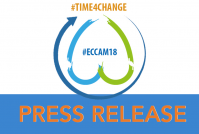 PRESS RELEASE
PRESS RELEASE
16th March 2018
Immediate Release
How healthy is your local Colorectal Cancer Screening Programme? Does it do the right test, reach the right people and get the right results?
Professor Stephen Halloran MBE FRCPath says: If 70% of your 50 - 75 year olds are doing biennial faecal immunochemical tests (FIT) and have tightly monitored colonoscopy then you will be saving as many lives as do the Dutch in their programme... but if not, perhaps your screening programme needs a health check!
DG JRC�s European Commission Initiative on Colorectal Cancer (ECICC) will launch a survey this year in 36 European countries on the current organisation of colorectal cancer screening.
Screening finds early cancers, saves lives... and saves money!
Jola Gore-Booth, Founder and CEO of EuropaColon says �We look forward to contributing to the ECICC project. Our aim is to ensure that every citizen in Europe will have access to colorectal cancer screening in the very near future�
Early screening saves lives. Many in Europe have no access to it. It is #Time4Change #ECCAM
Together we can do more to reduce the number of deaths from Colorectal Cancer
TAKE ACTION
Visit http://www.europacolon.com/ to download the ECCAM logo; Facebook and Twitter header images. ACT NOW and download the �I am supporting #ECCAM18 because...� poster......add a personal message and photo and share on social media using the hashtags #ECCAM18 and #Time4Change.
ENDS
For more information contact:
Jola Gore-Booth: [email protected]
NOTES TO EDITORS:
EuropaColon is the voice of colorectal cancer patients in Europe. Its aim is to save lives by bringing together all key stakeholders in the fight against this cancer which is highly treatable if diagnosed early.
Our community consists of Affiliate and Associate groups who work with us to prioritise and raise the profile of digestive cancers in Europe. Over the past fourteen years over forty Affiliate and Associate groups have joined the community from thirty-two countries.
Together we are campaigning for formal population screening programmes and conformity to EU guidance and policies in Europe.
23 March 2018
EuropaColon joins international cancer policy initiative - All.Can
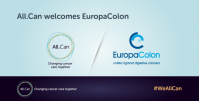
This month EuropaColon joined All.Can, an international cancer policy initiative. All.Can aims to drive greater efficiency across the entire cancer care pathway � where efficiency is defined as focusing resources on what matters most to patients.
The initiative began in December 2016 and since then, has established a research programme dedicated to improving the efficiency of cancer care. �It has representatives from many sectors, including: patients and carer representatives, healthcare professionals, health economists, researchers, insurers, providers, policymakers and/or representatives from different private companies in healthcare (full list of members here). All.Can international mainly operates in Europe and has affiliated All.Can initiatives in Canada and Australia.
EuropaColon is excited to be part of All.Can and has joined the research and evidence generation working group. It will represent the voice of digestive cancer patients by contributing our knowledge and expertise to All.Can�s programme of work over the years. �
For more information, visit the All.Can website (www.all-can.org) or contact [email protected].23 February 2018
PRESS RELEASE - Launch of European Colorectal Cancer Awareness Month March 2018
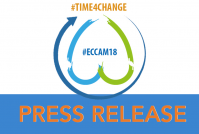 March 2018
March 2018
Immediate Release
The equivalent of twelve bus loads of people die each day from colorectal cancer in Europe!
Every year in Europe around 470,000 people are diagnosed with colorectal cancer, half of whom are likely to die. Whilst the disease is predominantly one of the over 50 �s a frightening increase is being seen in those under 50 being diagnosed across Europe
March is European Colorectal Cancer Awareness Month (ECCAM). Launched in 2008 by EuropaColon in the European Parliament in Brussels the meeting has become an annual event to kick start a month of intensive campaigning across Europe.
Colorectal cancer is the second most common cancer in Europe ..... yet it is a cancer that is preventable and highly treatable!
In the 10 years since ECCAM was first launched an extraordinary amount has been achieved. However this year EuropaColon asks the question....� has enough been done to change the situation Europe?� There is still a long way to go, particularly in implementing colorectal cancer screening across the European Union.
EuropaColon says It is #Time4Change.
In 2017 EuropaColon launched a survey on the Unmet Needs of Patients Living with Metastatic Colorectal Cancer (mCRC) and is the first time a survey of this kind has been commissioned for colorectal cancer. The goal being to recruit 1,000 patients from across 12 Eruopean countries! To date over 700 surveys have already been completed. Early results indicate clearly that there is still an overwhelming need for the implementation of formal colorectal cancer population screening programs for early diagnosis and prevention!!
�Not enough progress is being made towards implanting a system of colorectal cancer across the European Union.� is the damming view of Dr Alfred Sant MEP during the launch of #ECCAM 2018 Dr Sant adds �the goal should be that for all citizens in all EU Member States easy and affordable screening for colorectal cancer is made available!�
TAKE ACTION
Early screening saves lives. Many in Europe have no access to it. It is #Time4Change #ECCAM
Together we can do more to reduce the number of deaths from Colorectal Cancer
Visit http://www.europacolon.com/ to download the ECCAM logo; Facebook and Twitter header images. ACT NOW and download the �I am supporting #ECCAM18 because...� poster......add a personal message and photo and share on social media using the hashtags #ECCAM18 and #Time4Change.
ENDS
For more information contact:
Jolanta Gore-Booth at [email protected]
NOTES TO EDITORS:
EuropaColon is the voice of colorectal cancer patients in Europe. Its aim is to save lives by bringing together all key stakeholders in the fight against this cancer which is highly treatable if diagnosed early.
The Organisation is made up of Affiliate and Associate groups working together to prioritise and raise the profile of digestive cancers in Europe. It has a presence in 32 European countries with over 40 member groups
The Organisation and its members campaign for prevention, early diagnosis of colorectal cancer. Formal Population Screening programmes and conformity to EU guidance and policies in Europe.
01 February 2018
5 Things You Need to Know...January

Five things you need to know�. January
Happy New Year to all our friends and colleagues! We hope you all managed to have a relaxing break (although I�m sure it feels a long time ago already!) and you are as excited about 2018 as we are � there�s lots going on at EuropaColon and this year promises to be a very productive one.
Highlights from January included:
1)��� Celebrating our 14th Anniversary
14 years have flown past but we are thrilled with what we have been able to achieve and contribute in this time. In particular it has been an honour to help create a single European community of 43 groups in 32 countries and to get to know so many of you over recent years. When we think about all of the incredible awareness campaigns instigated by our groups, the growth of ECCAM and Annual Master Classes� we are definitely moving in the right direction!
Look out for an update on our website soon outlining all the inspirational work done by our member groups in 2017.
2)��� A pivotal moment in our history
While it is extremely rewarding to look back, it is even more exciting to look forward and it is certainly a year of change for our organisation. More information will be coming soon including the outcomes of a major strategy meeting to be held in February. In the meantime, we have just completed a move into new offices and started the process of re-registering EuropaColon in Belgium. Lots more news to follow in the coming months!�
3)��� Getting ready to launch initiatives in digestive cancers
Towards the end of last year we announced that we would also be moving into oesophageal and gastric cancer, both greatly under-represented cancers. Activities are gathering pace and our first major initiatives in this area will be an Unmet Needs survey on gastric cancer and, if funding is confirmed, setting up support meetings for patients, family and carers.
4)��� Great progress in our metastatic colorectal cancer survey
We are very pleased with the way our survey on the Unmet Needs of Patients Living with Metastatic Colorectal Cancer (mCRC) is progressing. Four of the 12 countries are now fully recruited and we continue to make progress with the remainder.�
This would not be possible without the help of our groups and all the patients, clinicians and nurses involved in recruitment who are going the extra mile when necessary. For example, Mrs Jadranka Stanisic Trenevski, a nurse from the Serbian Colorectal Cancer Patient Association told us: �We soon realised in Serbia that it would be easier for patients and we would get more responses if we distributed paper surveys. We have printed and sent them to all centres where patients are being treated. I have called each of these centres and helped them with all the questions they had. Also, we have organized five meetings with patients where we have distributed the surveys."� We are hearing stories like this in all participating countries � thank you to everyone!� We are looking forward to having the results later this year and to start work with our groups to ACTION the changes needed to make life better for these patients.
In the meantime, if you would like to help us recruit patients for the survey please write to [email protected]� To visit the survey page � which includes a full list of participating countries � please click here: www.europacolon.com/survey �
5)��� Preparing for ECCAM 2018 � #Time4Change!
Back in 2008 EuropaColon established European Colorectal Cancer Awareness Month (ECCAM) during the month of March as an annual awareness raising initiative.�
There has been tremendous progress in that time but this year we want to take stock of how far we have come and what still needs to radically change. So we are asking ourselves and the wider colorectal cancer community, have we done enough? Enough awareness raising, enough lobbying for effective formal population screening or for equal access to treatment and care across Europe?
We have come a long way but a lot more needs to be done, which is why we believe it is #Time4Change!
Stay tuned for more information next month and in the meantime look out for our #ECCAM18 campaign #Time4Change.
14 December 2017
5 Things You Need to Know...

We reach the end of a transformative year for EuropaColon in which we have attained record membership, partner numbers and announced our expansion into digestive cancers � oesophageal, pancreatic and gastric. It is the perfect platform for an extremely productive 2018!
Highlights in November and December included:
- Making our partnership with surgeons a reality.
To make a real difference in healthcare, partnerships are everything. We have been lucky enough to establish incredibly meaningful associations with almost every stakeholder involved in colorectal cancer � from health ministries and governments to clinicians, the media and, of course, patients. But to date, our work with surgeons has been limited. That has all changed this year, and in addition to working with the ESSO and ESCP we were invited to a surgical meeting at the Gemelli hospital in Rome where our CEO Jola Gore-Booth presented on the Power of Partnerships and had the opportunity to talk with several key surgeons � we look forward to working more closely with this vitally important stakeholder in the future. It was also announced that we would with the help of Professor D�Ugo and his colleagues and team be launching EuropaColon Italy in 2018. In addition, Jola was hugely honoured to be invited to witness laparoscopic surgery performed live by renowned surgeon Professor Gong from China. The skill was incredible to witness first-hand, and with this method, we know that patients can be out of hospital and getting on with their lives sooner than ever. We look forward to working with Professor D�Ugo in 2018. - Sending a giant inflatable colon to Scotland!�
EuropaColon working with Inflatable Body Organs (IBO) and their giant Inflatable Colon helped to raise awareness of colorectal cancer across the Western Isles of Scotland � five Isles in five days!!! The team was thrilled to be visited by Pudsey Bear in Stornoway - from the UK�s �Children in Need� charity initiative � to help raise awareness about bowel screening.� Bowel screening uptake across the Western Isles has increased over time but still fewer than three out of five people take up the invitation to be screened. For approximately every 650 people invited for regular screening, one bowel cancer death will be prevented. - Attending a major congress in digestive cancers.
Jola Gore-Booth and our Director of Policy, Geoffrey Henning, attended the United European Gastroenterology (UEG) annual meeting in Barcelona. This is a key discipline in the management of digestive cancers and therefore an important meeting for us. In addition to meeting sponsors and our clinical supporters, Geoffrey was invited to present to the Health Stomach Initiative. He outlined our plans for oesophageal and gastric cancer including the forthcoming patient survey, our support for patients and carers initiative and a Heatmap to detail the issues and blocks to treatment and care. Look out for more information on all of this in 2018! - Co-chairing the patient track of the Pancreatic Cancer Academy. �Pancreatic cancer is an area of significant unmet need and will become a major focus for us in the future. Taking place in Prague this year, the Pancreatic Cancer Academy meeting brought together clinicians, nurses and patient advocates for two days of information sharing. We left the meeting feeling very positive, with considerable support shown for greater interaction by the different groups to achieve more in this important area.
- Participating in a patient forum at ISPOR. Zorana Maravic, our Director of Group and Project Development, participated at the ISPOR Annual European Congress in Glasgow in November. Zorana took part at the 9th Patient Representative Roundtable organized by ISPOR and, with�fifteen other patient representatives, joined other key stakeholders such as researchers, payers, decision makers, and health technology producers to discuss the evolution of patient involvement in HTA and the added value of real-world and patient-level data.
Finally, from all of us here at EuropaColon, we are wishing you a very happy and restful holiday season.
We look forward to sharing lots of exciting developments with you in 2018!




-(2).png)
.png)
